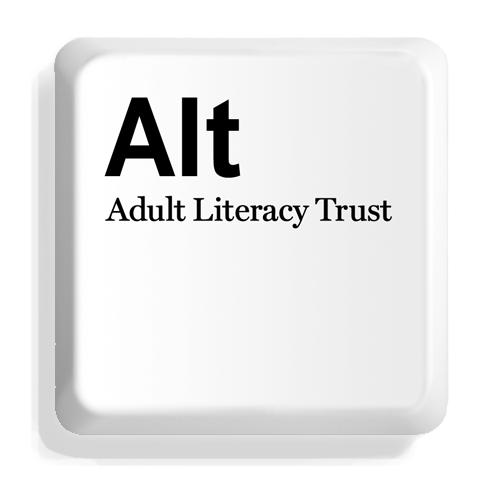The Impact of poor literacy
Literacy is defined as the ability to communicate and to understand, evaluate, use and engage with written texts. Literacy encompasses a range of skills, from the decoding of written words and sentences to the comprehension, interpretation, and evaluation of complex texts. Sound literacy skills provide the foundation for adults to participate in society, achieve their goals, and develop their knowledge and potential.
The lack of reading skills can be a main contributor to a life of hardship, and to an intergenerational cycle of poverty. As many as 15% of adults in England read at or below a basic level (proficient only at or below what is known as Level 1 in literacy), struggling with basic reading skills that most of us take for granted. In other words, significant numbers of adults do not possess the basic information-processing skills considered necessary to succeed in today’s world.
The lack of reading skills can have devastating impacts on a person’s life, and is a key contributor to an intergenerational cycle of poverty. Those with low literacy skills are twice as likely to be unemployed, and workers with poor literacy earn on average 60% less than those with basic literacy. Adults with low literacy are far less likely to access the health, housing and other social services to which they are entitled, and report significantly poorer health outcomes. The long-term effect of parents’ low literacy can also have a substantial impact on their children: by far the strongest indicator of a child’s success in school is his/her parents’ level of education. Communities experiencing marginalisation are amongst the worst affected, including ethnic minorities, those from lower socioeconomic backgrounds and ex-offenders.
Learning to read later in life is uniquely challenging; many people struggle to seek help due to stigma or shame, and lack the structure and time to prioritise learning in lives busy with work and caring responsibilities. Yet we know that when adults improve their reading skills and confidence it can have profound and lasting benefits, enabling them to make informed decisions for healthier and more fulfilling lives. They are more able to find and retain decent-paying jobs, better navigate everyday tasks such as shopping or taking public transport, manage their personal finances, access public services, and participate in their children’s education. It can be a critical factor in boosting social mobility and in creating new opportunities for people to prepare for, enter and progress in the workplace.
Today, literacy is more important than ever
We rely today on the written word through communication technologies and devices that hadn’t been imagined even a decade ago. The way we live and work has changed profoundly – and so has the set of skills we need to participate fully in and benefit from our hyper-connected society and increasingly knowledge-based economy. As a result, people with low basic skills proficiency (both literacy and digital skills) face a much greater risk of economic disadvantage.
Individuals with low skills are increasingly likely to be left behind. As the demand for skills continues to shift towards more sophisticated tasks, as jobs increasingly involve analysing and communicating information, and as technology pervades all aspects of life, those individuals with poor literacy and numeracy skills are more likely to find themselves at risk. Low levels of literacy limits adults’ access to many basic services, to better-paying and more-rewarding jobs, and to the possibility of participating in the further education and training that is crucial for developing and maintaining skills over a working life.
The impact of poor literacy
goes far beyond earnings and employment
Individuals with lower proficiency in literacy are also much more likely to believe that they have little influence on political processes, and not to participate in associative or volunteer activities. They also under-utilise the National Health Service out of fear, or because they are unable to follow written instructions, and as a result are much more likely to report poor health.
In England, family background has a major impact on literacy skills. Too often we see that the children of parents with low levels of education have significantly lower proficiency than those whose parents have higher levels of education, even after taking other factors into account. As a result, progress has been highly uneven; improvements between younger and older generations are barely apparent. Young people in England are entering a much more demanding labour market, yet they are not much better prepared than those who are retiring. In fact, recent OECD research among developed countries suggests that England is among the three highest-performing countries in literacy when comparing 55-65-year-olds, but among the bottom three countries when comparing literacy proficiency among 16-24-year-olds.
The long-term effect of parents’ low literacy can also be profoundly seen on their children; if a parent cannot read, the child starts school at a disadvantage. Then, once the child is in school, the parent is often unable to help with homework. Low literacy becomes intergenerational: the strongest indicator of a child’s success in school is his/her parents’ level of education.
Join us in
ending poor literacy amongst adults
Helping an adult to improve their skills and confidence to read can have a profound and lasting impact on their ability to function successfully within our communities, by improving their ability to find and retain better paid and more secure jobs, and help make better informed decisions that can ensure healthier lives.




